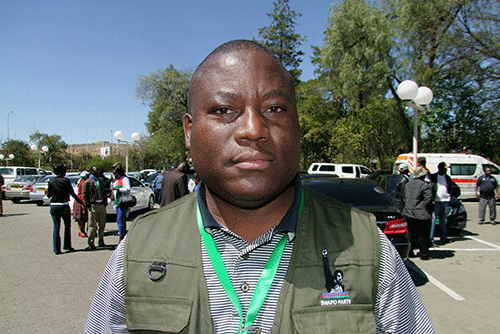Chairperson of the Parliamentary Standing Committee on Constitutional and Legal Affairs Kletus Karondo has expressed grave worry over outdated laws on Namibian books, warning such legislation may lead to miscarriage of justice.
Karondo expressed his worry to the National Assembly on Tuesday while presenting the findings of the stakeholder consultative workshop held in Tsumeb in March this
year.
He said regular efforts of the Law Reform and Development Commission (LRDC) and the justice minister on the repeal of obsolete laws, notwithstanding the staffing constraints and limited budgetary allocation, are overwhelming and beg for support.
“Due to these shortcomings, many a time, the enactment of the laws is delayed from the initiation process, impacting the work of the LRDC due to limited resources,” he said.
However, the Swapo backbencher said they are happy and look forward to the Obsolete Laws Bill that will be tabled for repeal by justice minister Ivonne Dausab during the current session of parliament.
On the issue of bill processing delays, Karondo said the committee encouraged Dausab to ensure a systematic collaboration between the ministry’s directorate of legal drafting and parliament’s table office and the legal services directorate to provide bill summaries to MPs, who will aid their comprehension and expedite bill processing in parliament.
He said delegates at the workshop agreed the Ombudsman Act is outdated and needs replacement.
Furthermore, Karondo said other concerns raised at the workshop include lack of proper infrastructure, inadequate staff establishment and inadequate funding across government offices, institutions and agencies.
He said the committee also observed with concern some numerous challenges faced by government institutions in delivering effective and efficient services to the Namibian citizens, such as inadequate infrastructure and the slow progress of decentralisation of services.
“The real and perceived cost of justice appears to be the in the ability of many citizens to access justice,” he said.
Also, he said, the perceived cost of hiring lawyers, the apparent ineffectiveness of the legal aid regime and understaffing in the justice ministry, the office of the judiciary as well as the attorney general’s office were some of the concerns raised.
Similarly, he said the justice ministry bemoaned the shortage of skilled staff, such as legal drafters, legal aid lawyers, government attorneys and funding as some of the major challenges impeding the execution of justice.
“The challenges and costs associated with the administration of justice, particularly in the area of criminal jurisprudence, will be greatly alleviated if government can invest a little bit more in the prevention and combating of crime,” he said.
According to him, the justice ministry and office of the judiciary are further faced with inadequate infrastructures, such as buildings, offices, courtrooms and accommodation for professional, judicial and administrative staff.
Another challenge, he said, is the backlog of court cases in the office of the judiciary due to financial and personnel constraints.
He told lawmakers that since the office of the judiciary was separated from the justice ministry in 2015, the office does not have its fixed assets beyond the court building and rooms.
This, according to him, resulted in the inability of the office to adequately house magistrates and other court officials.
– ktjitemisa@nepc.com.na


